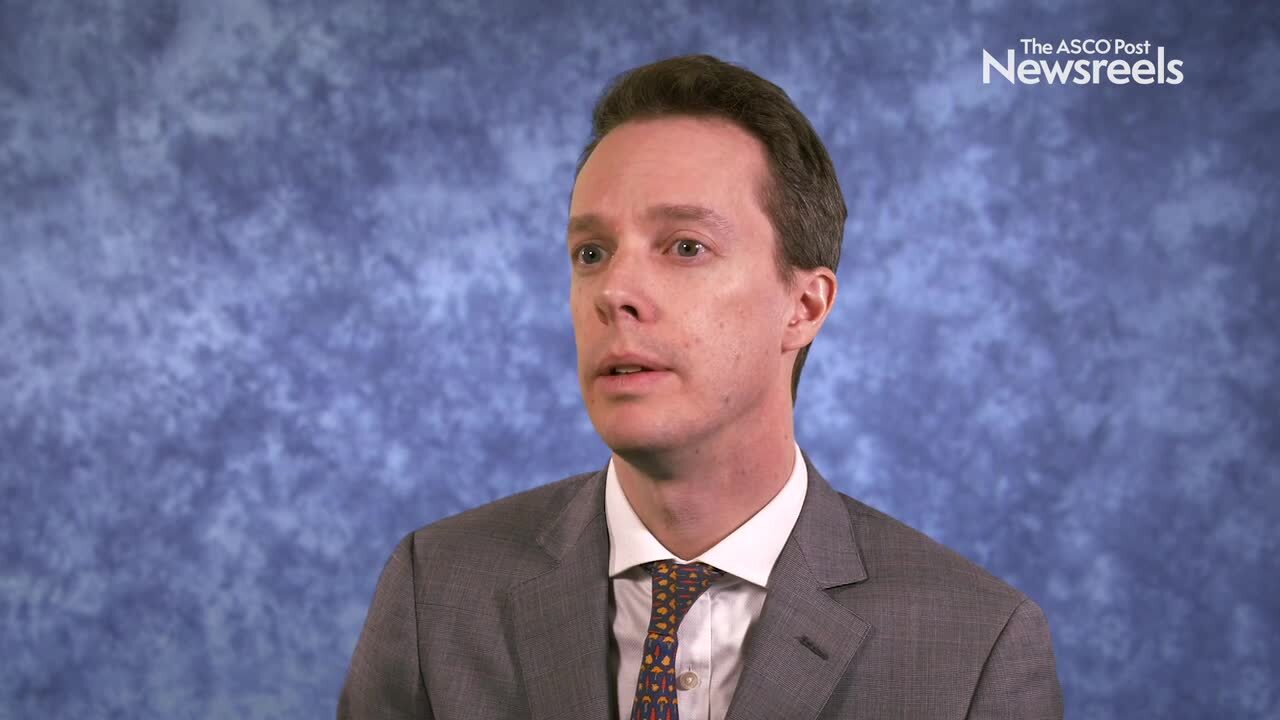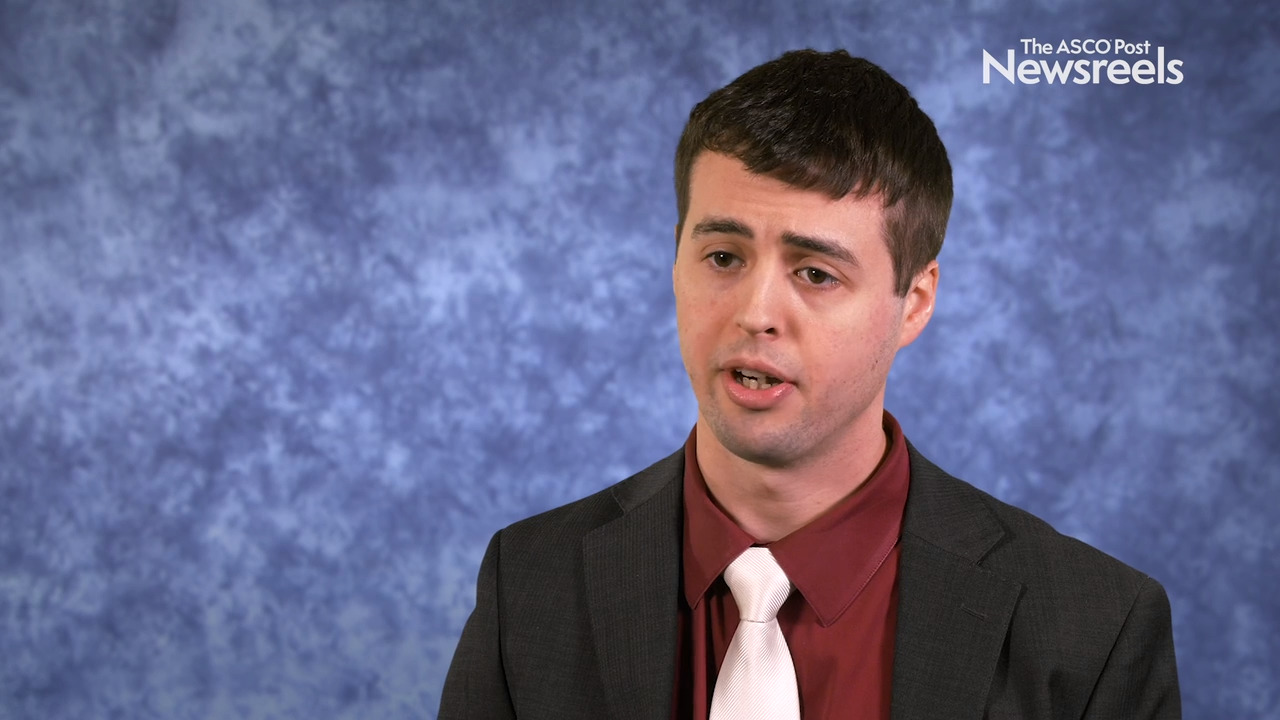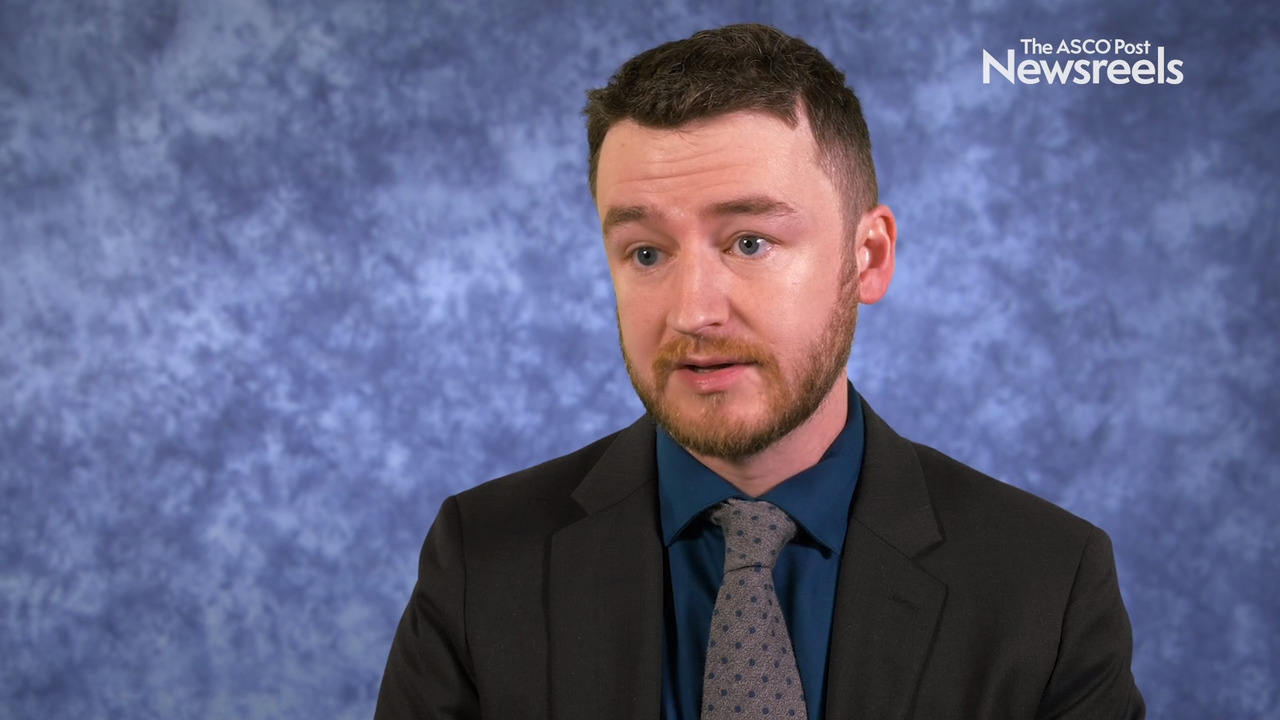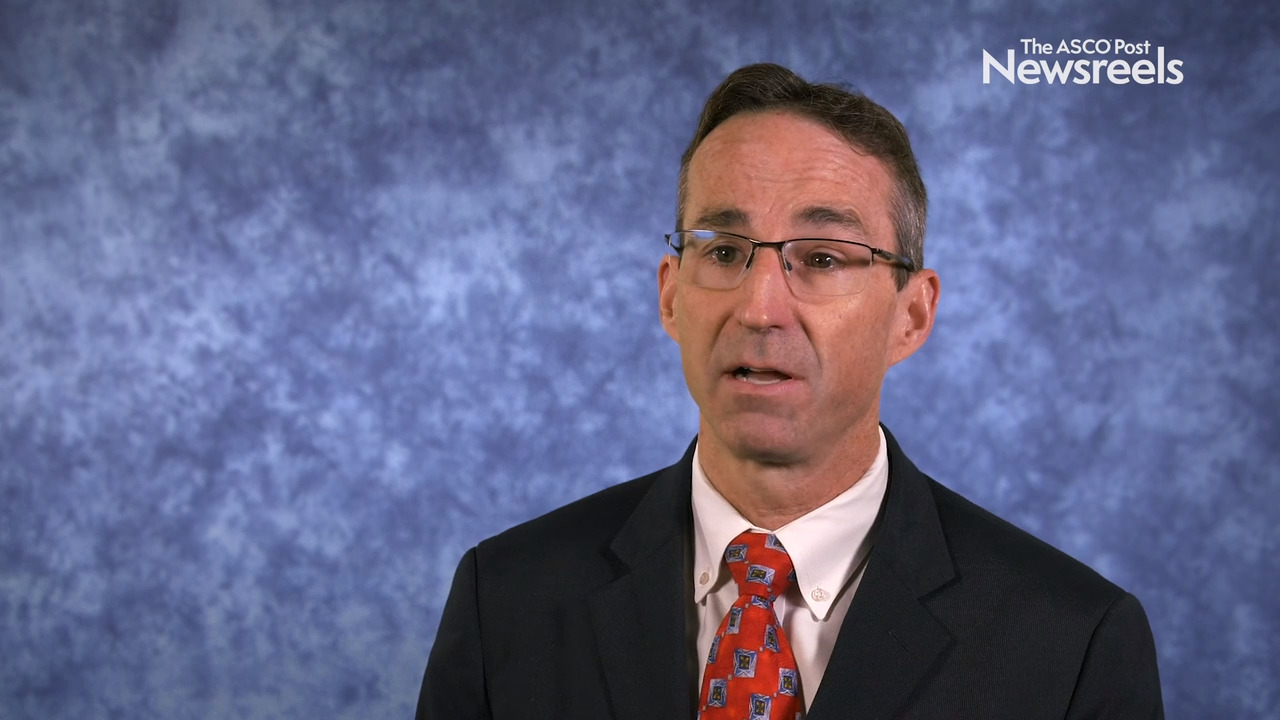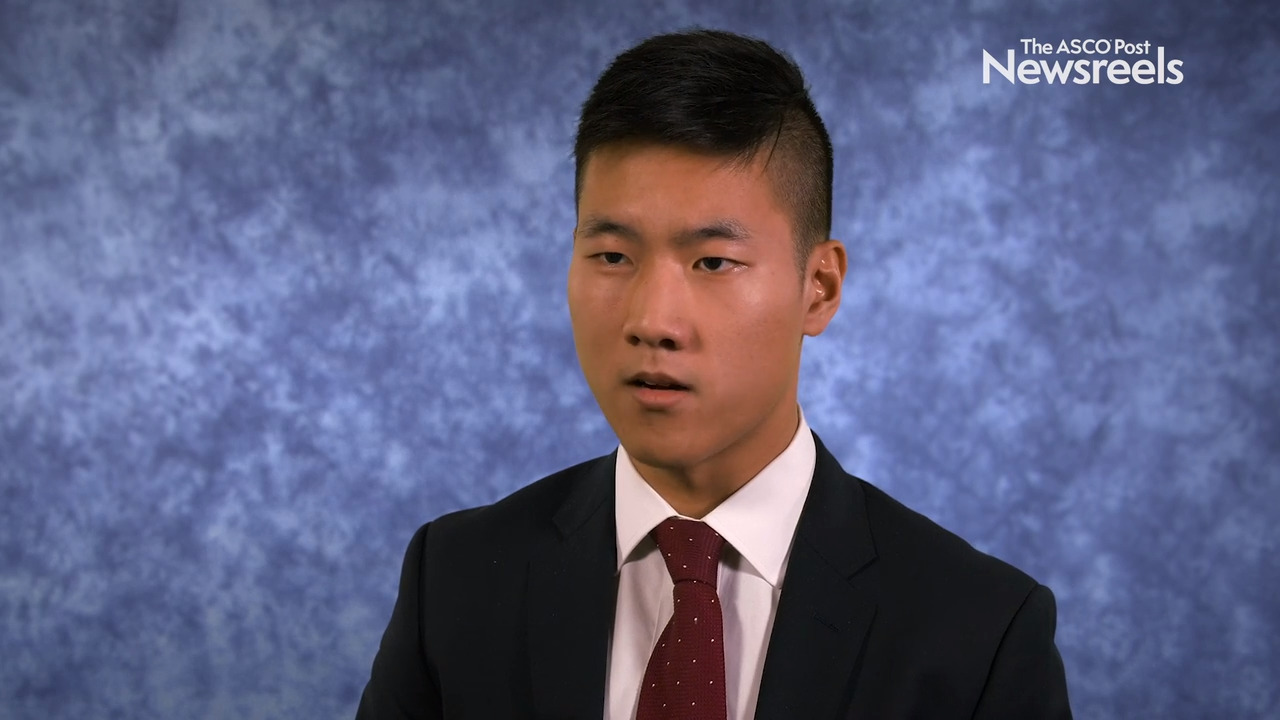Dario Vignali, PhD, on Immune Resistance Mechanisms in Cancer
2020 ASCO-SITC Clinical Immuno-Oncology Symposium
Dario Vignali, PhD, of the University of Pittsburgh and UPMC Hillman Cancer Center, summarizes his Keynote Address, which covered what drives systemic immune dysfunction in patients with cancer, what promotes inhibitory receptor expression, and what limits the persistence of antigen-specific T cells.
John N. Lukens, MD, of the Hospital of the University of Pennsylvania, discusses his finding that taking antibiotics within 3 months of starting treatment with immune checkpoint inhibitors may lead to inferior overall survival in patients with stage III or IV melanoma. The antibiotics were also linked to a higher incidence of severe immune-mediated colitis (Abstract 56).
Jarrett Failing, MD, of the Mayo Clinic, discusses his study data, which show some agreement between the expression of human leukocyte antigens in primary non–small cell lung cancer with brain metastasis. His findings may have some bearing on resistance to immune checkpoint inhibitors (Abstract 43).
Christopher B. Cole, MD, PhD, of the National Cancer Institute, discusses findings from a phase I study of intraperitoneal monocytes activated by interferons alpha and gamma in patients with ovarian cancer. Two of 11 patients had a partial response and 5 of 11 had stable disease; ongoing efforts are exploring more immune system targets in order to increase efficacy (Abstract 1).
Martin McCarter, MD, of the University of Colorado Denver, discusses the recent strides in surgical oncology, how the role of surgery has changed, and what lies ahead for this staple of cancer therapy.
Kevin Tyan, of Kinnos, and currently a medical school student at Harvard University, discusses his study findings, which showed that patients with melanoma who are treated with immunotherapy had a significantly lower risk of developing colitis if they also took vitamin D ( Abstract 89).
